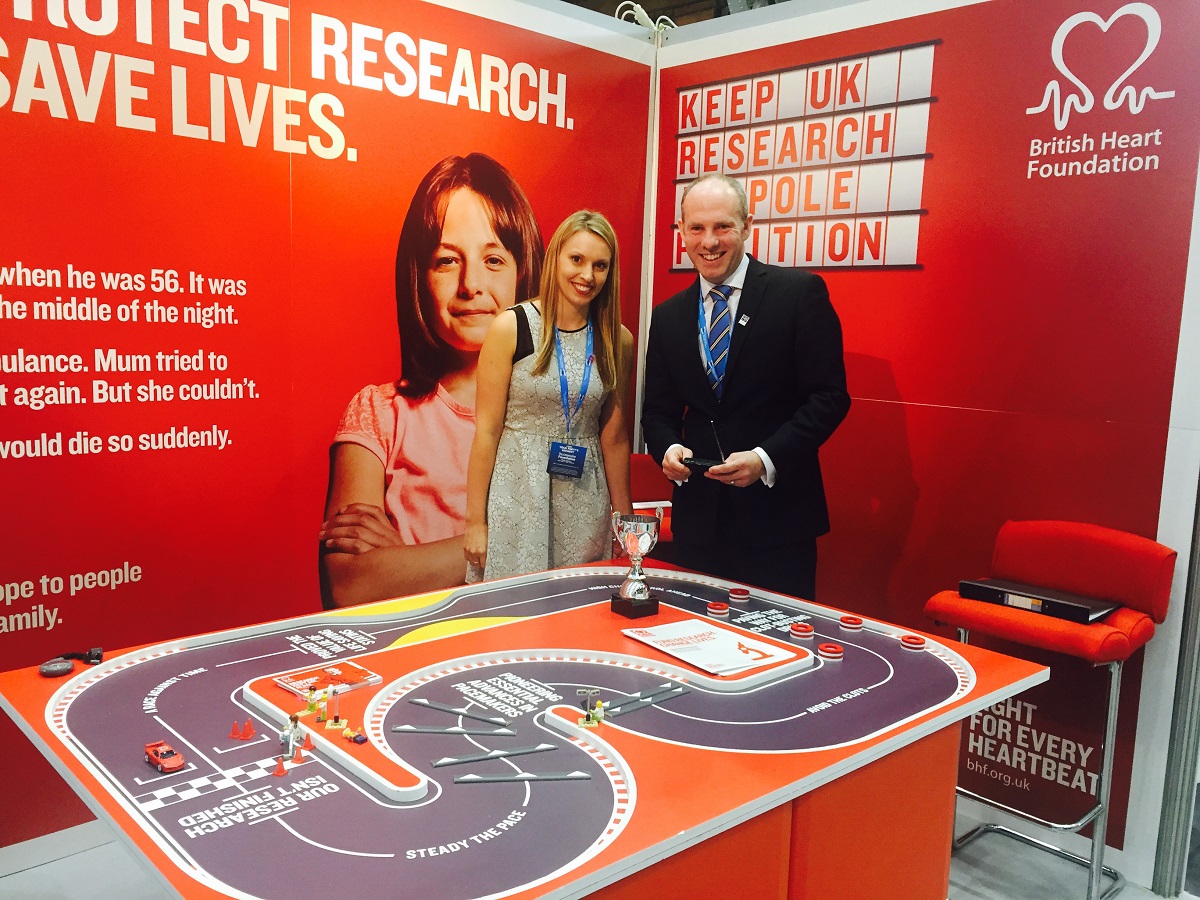
Justin Tomlinson MP has shown his support for UK medical research by joining British Heart Foundation (BHF) scientists and to hear how research is helping to save and improve the lives of the millions of people affected by heart and circulatory disease in the UK.
Justin spoke to BHF-funded researchers and raced around the special BHF track to learn more about the latest research projects. There are an estimated 7,900 people in North Swindon living with heart and circulatory disease, and seven million people across the UK. It causes a quarter of all deaths in the UK.
The BHF is the largest independent funder of cardiovascular research and aims to spend around £100 million every year on world class research to improve prevention, diagnosis and treatment of cardiovascular disease. Scientific research has driven huge improvements in the way that we live and work as individuals, and to the UK economy as a whole.
Ongoing Government investment in science allows UK researchers to continue with their world-leading research, maintaining the UK’s global position in life sciences, stimulating the economy and providing continuing improvements in public health.
Justin has a long-standing relationship with the British Heart Foundation and is the former Vice-Chair of the APPG Heart Group and is the serving Patron of the Swindon BHF Branch.
Justin Tomlinson said: “Heart disease is a devastating condition that affects thousands of people across North Swindon. But with the public’s support, charities like the BHF are able to fund some of the world’s leading researchers, who work tirelessly to find the next major breakthrough that could help save more lives. I’m proud of the UK’s world leading position on research as Government investment provides vital foundations on which charities and industry can build."
Professor Peter Weissberg, Medical Director at the BHF, said: “Through our research we’ve helped make great progress over the last 50 years to reduce the number of deaths from heart disease by more than 50 per cent and improve the lives of people living with it. This year alone our researchers have developed a highly sensitive blood test that could double the detection rate of heart attacks in women. And recently our researchers have improved our understanding of how we may be able to regenerate the heart after a heart attack bringing hope that one day there will be a treatment for severe heart failure. More research is needed to make discoveries that will lead to medical advances to further transform and save lives. We can’t do this alone. Our life saving science can only exist in a world-class research environment."

